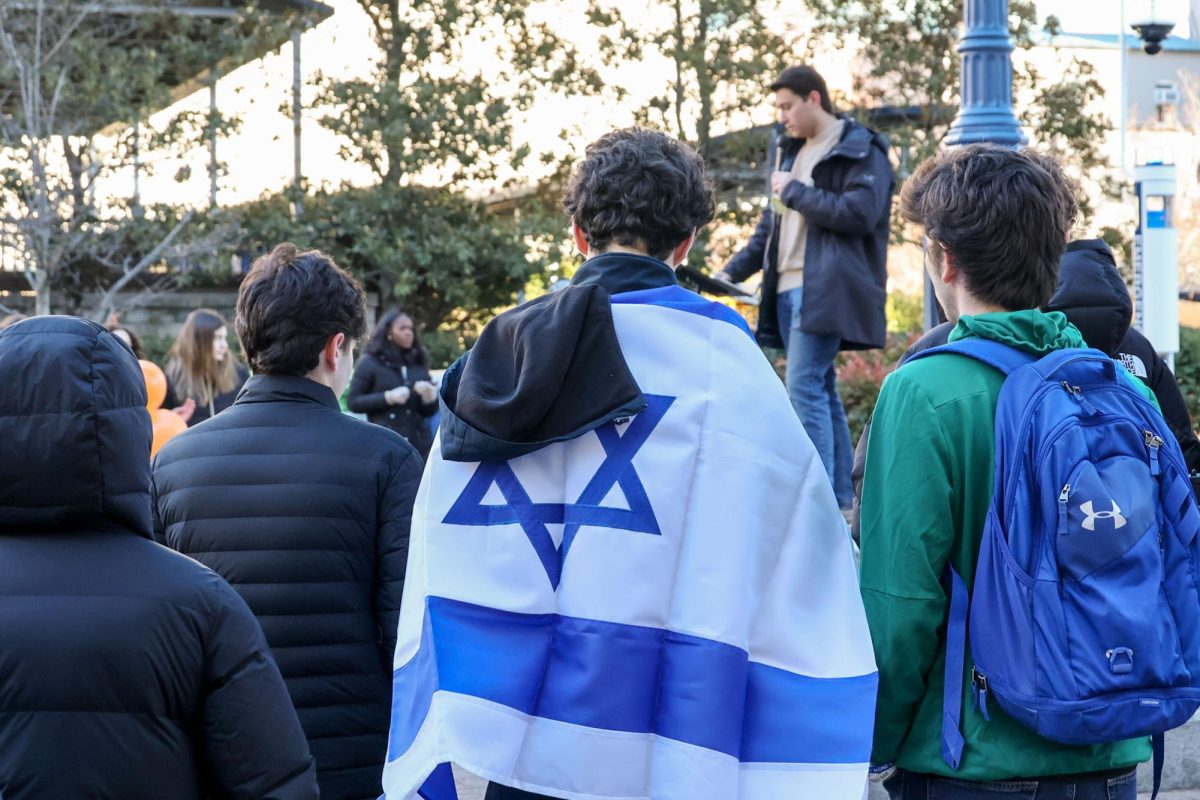Clarification appended
The University is conducting an internal review based on the damning Freeh report released in July that outlined Pennsylvania State University’s failures to prevent the sex abuse scandal that marred the school over the last year.
University President Steven Knapp commissioned the Task Force to Assess Report on Penn State July 12 upon reviewing the Freeh report. In more than 250 pages, the report outlined sweeping failures in leadership across Penn State, perpetrated out of a fear of bad publicity when sexual harassment allegations surfaced about former football defensive coordinator Jerry Sandusky.
Following the release of the report, administrative policies and practices for higher education institutions across the country came under scrutiny.
The University only announced the task force’s existence Thursday through a release that said the school plans to publish its findings next semester.
The Freeh report laid out 120 recommendations for Penn State in eight areas, including campus culture, the administration, the Board of Trustees and campus police. Senior Vice President and General Counsel Beth Nolan declined to go into specifics about GW’s evaluation.
Nolan, who is leading the review, said the University waited two months to announce the task force because it wanted to develop a game plan for gathering feedback.
“Once that work was underway and we knew we would be reaching out to the GW community, we were ready to announce the task force,” Nolan said. “It made sense to us to wait until students and faculty were back on campus and engaged before announcing the task force.”
“Of course, Penn State and GW are different institutions, with different structures and programs, so we are also considering which recommendations are most applicable to GW,” she added.
Conducted by Louis Freeh’s law firm, Freeh Sporkin & Sullivan, the report has been used as a springboard for schools, including Oklahoma State and Temple universities, to conduct their own internal reviews.
The Freeh report’s recommendations include background checks on every employee, contractor and volunteer every five years – a practice GW does not follow.
University spokeswoman Candace Smith said in May – when former housekeeper Leon Flythe was arrested for a fourth time in three years while employed at GW – that there is “not a process in place” if an employee is criminally convicted after employment begins. Prince George’s Country Police found Flythe with possession of 23 pounds of marijuana, ammunition and $4,000 in cash.
Vice President for Human Resources Sabrina Ellis said in mid-August that GW regularly reviews the background check process, and deferred to the department’s policies listed online, which do not include specifics on background checks in situations aside from when an employee’s job title is changing.
When asked if the task force is honing in on issues identified by the Freeh report at Penn State, University spokeswoman Michelle Sherrard said the group is addressing a “variety of compliance and operational issues” to ensure University policies were documented and enforced.
GW’s committee will involve several subgroups – comprised of community members – to help identify issues with University’s ability to prevent future crises. The groups are still in the planning phrase, Nolan said.
“The task force is not an operational group, but an advisory one,” Nolan said. As the group progresses in their findings, they will recommend areas of improvement and direct their suggestions to the offices that can make the changes.
Throughout the semester, the task force will conduct community polling to identify other ways GW can improve, she added.
Last November, when allegations surfaced publicly about Sandusky, Knapp sent a message to students and employees reiterating the University’s safety offices and asking members of the GW community to be transparent about campus concerns.
“We all need to ask the tough questions and take on the responsibility, when necessary, of reporting incidents that are inconsistent with our shared values,” Knapp wrote in the letter.
The University also reviewed its safety procedures in the wake of the Virginia Tech shooting in April 2007. Knapp launched a security task force to address the University’s procedures in the case of a crisis on campus.
This article was updated Sept. 4, 2012 to reflect the following:
The article was clarified to reflect that Vice President for Human Resources Sabrina Ellis commented regarding the background check process for employees in mid-August.






